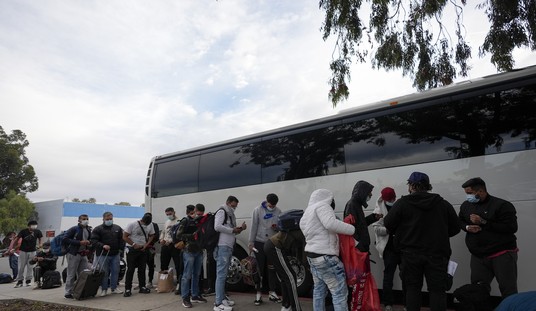In Maine, Democrats are accusing Republican Governor Paul LePage of voter intimidation. LePage has allegedly said that college students who cast a ballot today “will be investigated to make sure they follow state law.” The statement was prompted by controversy about “legal advisory” fliers distributed at Bates College in Lewiston, Maine.
The Republican governor’s comment comes after officials at a private liberal arts college in Lewiston said fliers distributed on campus with incorrect information about residency and fees are a “deliberate attempt at voter suppression.”
The orange fliers were found at numerous dorms at Bates College as well. It’s unclear who was responsible for the fliers.
The leaflets say to register to vote in the city, students must pay to change their driver’s licenses to a Lewiston address “within 30 days.” They also say students must pay “hundreds of dollars” to re-register vehicles and do not give a timeframe.
Democrat Secretary of State Matt Dunlap seems to be suggesting that being enrolled at a college is sufficient to establish residency for voting. In my experience, students who go away to school typically vote absentee in whatever precinct they came from. Is a college dormitory considered a permanent residence?
Democratic Secretary of State Matt Dunlap said the information is false and said enrolled students living in the community can vote. State law doesn’t require a Maine driver’s license to vote, and establishing residency for voting doesn’t mean you have to pay any fees or taxes.
“You don’t pay for a right,” Dunlap said. Any individual who declares Maine residency must follow rules like vehicle registration, but that process is completely separate from voter registration.
Voting absentee in their home precincts would cost them nothing. So this argument seems pretty flimsy.
Zachary Heiden, legal director at the ACLU of Maine, called on the Department of Justice to investigate the intent behind LePage’s statement. Heiden said LePage’s words appear “designed to make college students afraid to vote.
“College students who live in Maine have the right to vote in Maine, and they are not subject to different laws than anyone else. Many of these young people are voting for the first time in a presidential election. The governor should be encouraging that civic participation, not doing everything in his power to undermine it.”
But it seems as if those crying foul are suggesting that college students actually are subject to different, less stringent rules. An article in the Maine Sun Journal describes the incident with the orange “legal advisory” fliers distributed at Bates College.
Maine law does not require a driver’s license to vote. Students are allowed to vote as long as they consider themselves residents of Lewiston. Here are the rules for college students seeking to vote, as outlined by the secretary of state in 2012.
“The rules” links to a Maine Voting Residence Fact Sheet prepared by the state that appears to contradict the arguments made by Democrats, the ACLU, and indignant students.
Maine Voting Residence
“Residence” is defined in the Maine election law (Title 21-A, section 112(1)) as “that place where the person has established a fixed and principal home to which the person, whenever temporarily absent, intends to return.” Note that this definition has two components: 1) the establishment of a fixed and principal home in a given place, and 2) the intent to return there whenever temporarily absent.
Under this definition, residence is something that you establish, not something you choose.
The rules do list “a direct statement of your intention to reside at a particular place” as evidence of having established residence but in Maine, residency for voting is defined by legal precedent.
Maine courts have held that voting residency as defined in Maine’s election statutes is equivalent to the common law concept of domicile. Whereas “residence” typically refers to the location where you physically reside, domicile means something more. In order to establish domicile, you must intend to make a place your home, and not just physically live there.
Since attending college is by its very nature a transient process, residing on campus would not seem to be the same as establishing a domicile. Extra scrutiny of college students’ votes may be warranted.
LePage also claimed Maine Democrats have encouraged out-of-state college students to vote “even though there is no way to determine whether students also voted in their home states.”
The fliers distributed at Bates College, which the Secretary of State admits “the information in those fliers is not necessarily inaccurate,” were almost certainly a voter suppression effort but is it really voter intimidation for the Governor to suggest that students’ votes be investigated? In isolation, probably not. Perhaps, if LePage hadn’t already established a track record of being shady one could argue that the was just encouraging people to obey the law.
There should be well established procedures for college students and voting. Both sides deserve blame for it being a controversy during the week of an election.













Join the conversation as a VIP Member